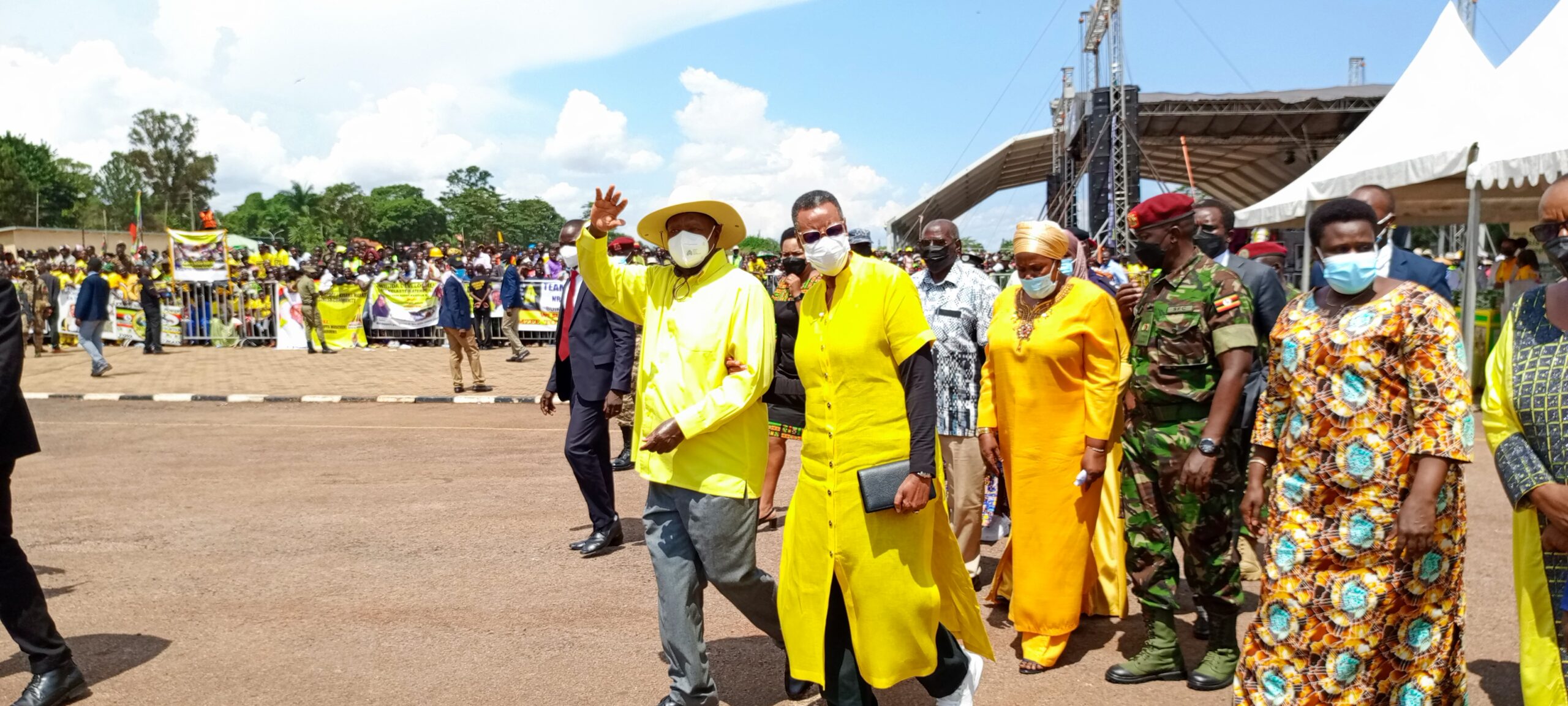Politics
You Did A Great Job: President Museveni Recognizes Efforts Of Katanga Veterans Towards Liberating Uganda

By Gad Masereka
On September 8th, Ugandans honoured President Yoweri Kaguta Museveni and all the veterans who participated in the Katonga war, commanded by the Office of the National Chairman boss Hadijah Uzeiye Namyalo.
The celebrations were held at the Kololo ceremonial grounds, which drew thousands of people from all around Uganda to celebrate with Jaja. The event also drew religious figures, cultural leaders, MPs, ministers, and ambassadors from many countries.
President Museveni stated in his speech that, apart from being his birth month, September contains two other events that make it important for him.
“There are two Septembers in our struggle that are important. One occurred on July 17, 1972, when I was 28 years old, and we launched an attack from Tanzania on Mbarara. “It was a bad September, though, because we planned the attack poorly and lost a lot of people,” Museveni stated on Friday.
The event was also used to honor NRA fighters who fought in the Katonga battle.
The president stated that the other memorable September event occurred in 1985, during the battle of Katonga with government forces in the evening days of the NRA bush war.
“I am grateful that you agreed to combine my 79 years of life with our struggle and, in this case, the Katonga events.” I’d want to thank everyone who took part in the Katonga wars and previous clashes.”
Museveni claimed that the upheaval that Uganda experienced before to the NRA’s acquisition of power in 1986 could have been avoided if the country’s leaders had listened to what the people were saying.
“Ugandans should understand that those wars were completely unnecessary.” We could have had complete peace, but some people chose sectarianism. The pain we endured may have been averted. We might have negotiated and handled these issues without bloodshed, but others refused to listen to us and refused to accept democracy. That’s why we had to struggle till we gained victory,” Museveni remarked of Uganda’s turbulence since independence in 1962.
In the midst of the tumult, Prime Minister Apollo Milton Obote deposed Uganda’s first president, Sir Edward Muteesa, and declared himself president, establishing a dictatorial dictatorship with the UPC as the only official party.
Meanwhile, Idi Amin deposed Obote in 1971 while he was attending the Commonwealth Heads of Government Meeting in Singapore.
Eight years later, in 1979, Amin was deposed by Tanzanian troops and Uganda National Liberation Front forces, and Obote returned to head the country before being deposed a second time in 1985 by another coup led by Tito Okello.
Okello’s government lasted only a few months before being deposed by the National Resistance Army rebels led by Yoweri Museveni in 1986.
Museveni stated on Friday that the country is stable and that the war is on to ensure social and economic development while also ensuring that every child receives an education.
“Everyone should participate in the money economy by working in commercial agriculture, services, industries, and information and communication technology.” That is the conflict we are fighting: poverty in homes and across the country.”


































